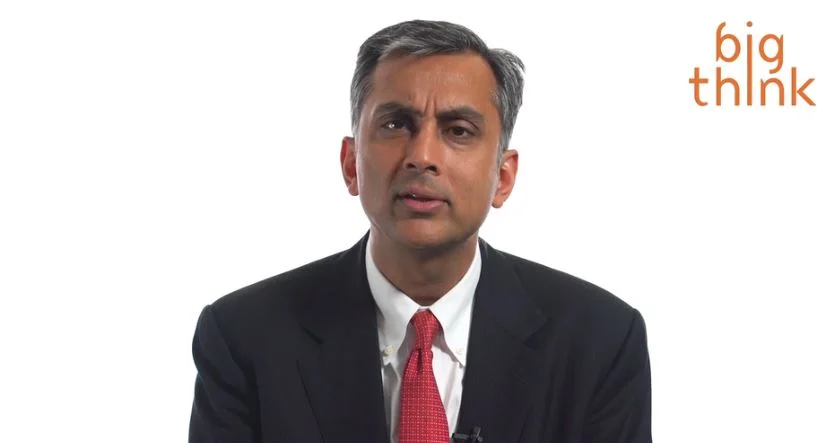IN THE NEWS
If you're not a numbers person, then balance sheets and financial jargon can be intimidating and easy to ignore. But if you want to advance in your career, it's crucial that you are able to make smart financial decisions and develop the confidence to clearly communicate those decisions to others.
The finance industry is widely thought of as being morally suspect. Even those who work in finance tend to compartmentalize between their personal lives and how they get ahead professionally. Mihir Desai argues that not only is this preconception completely false but it’s detrimental to those who work in finance as well as the industry itself.
These case studies offer a unique perspective on making financial decisions in a globalizing world.
The New York Times
The fate of Uber’s stock is a verdict on the winner-take-all venture capital model that dominates Silicon Valley.
The New York Times
With Apple Inc. now exceeding $1 trillion in market capitalization, it’s tempting to understand this moment in terms of the dominance of all-too-large companies and technology in our lives.
Harvard Magazine
The Trump Administration’s successful efforts at tax legislation stand out as the primary achievement of its first year. But the hurried, largely furtive drafting, and rush to passage at the end of 2017, have helped obscure the new tax regime’s real impact.
The Washington Post
The Dublin-based Botox-maker Allergan announced early Wednesday it would abandon its mega-merger with U.S. pharmaceutical giant Pfizer after new government regulations made the tax advantage of the cross-Atlantic deal more difficult to achieve.
The Wall Street Journal
Removing the incentive for American companies to move their headquarters abroad is a widely recognized goal. To do so, the U.S. will need to join the rest of the G-7 countries and tax business income only once, in the country where it was earned.
The Washington Post
Again, A U.S.-based multinational corporation is merging with a foreign counterpart, with the intent to pay taxes at the other country’s lower rate. By joining forces with Ireland-based Allergan, pharmaceutical-maker Pfizer may reduce its effective tax rate from 26 percent to 17 percent.
The New York Times
The fate of Uber’s stock is a verdict on the winner-take-all venture capital model that dominates Silicon Valley.
The New York Times
With Apple Inc. now exceeding $1 trillion in market capitalization, it’s tempting to understand this moment in terms of the dominance of all-too-large companies and technology in our lives.
The New Yorker
One discipline reduces behavior to elegantly simple rules; the other wallows in our full, complex particularity. What can they learn from each other? The idea that there is a gap between the world of economics and the wider world is also a theme in “The Wisdom of Finance: Discovering Humanity in the World of Risk and Return” by the Harvard Business School professor Mihir Desai.
Harvard Magazine
The Trump Administration’s successful efforts at tax legislation stand out as the primary achievement of its first year. But the hurried, largely furtive drafting, and rush to passage at the end of 2017, have helped obscure the new tax regime’s real impact.
People have a bad impression of finance, and that's mostly worrying because its often justified, says Harvard Business School professor Mihir Desai. The sector is in dire need of rehabilitation, and there are several ways it can be done. The first is to realize that turning money into more money is a shortsighted investment.
Why did Wall Street go astray? For most of the last several centuries, bankers and financiers were the pillars of society, the bastions of morality, the people in society that everyone respected. Of course, there was the odd rotten apple in the barrel, but by and large, bankers were trusted and looked up to. Yet over the last few decades, Wall Street has become almost a synonym of evil. What went wrong? What can be done to restore the financial sector to the level of respect that it once enjoyed?
In this interview with the Tax Foundation, Professor Desai analyzes the nature, drivers, and economic effects of profit shifting, with a specific emphasis on the real economic distortions that profit shifting may cause. Moreover, professor Desai highlights aspects related to firm uniqueness with respect to profit shifting and offers a set of possible solutions to address profit shifting.
Fortune Magazine
By soliciting ideas from large groups, the U.S. can come up with the right policies to reform the nation’s tax code — similar to the way complex computer systems are managed around the world.
By the end of 2013, Apple had $137 billion dollars in cash and marketable securities. This case explores how companies can generate such large amounts of cash and how and if they should distribute it to shareholders, especially in the face of shareholder pressure. In the process, students are asked to undertake fundamental financial analyses, including ratio analysis, a financial forecast, and a cash distribution analysis.








